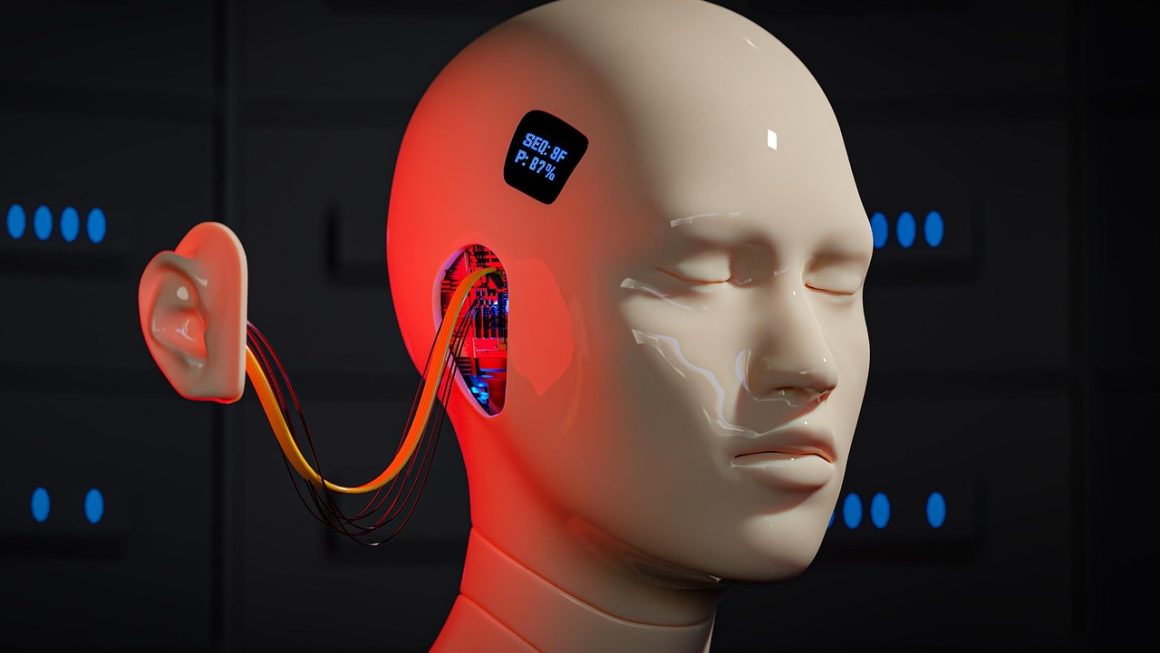Imagine a world where mundane tasks vanish, decisions are optimized with incredible speed, and personalized experiences become the norm. This isn’t science fiction; it’s the reality being shaped by Artificial Intelligence (AI) right now. From streamlining business operations to revolutionizing healthcare, AI is rapidly transforming industries and changing how we live and work. Let’s delve into the diverse and impactful applications of AI, exploring its current state and potential future.
AI in Healthcare: Revolutionizing Patient Care
AI is poised to revolutionize healthcare, offering solutions for diagnosis, treatment, and preventative care. By analyzing vast amounts of medical data, AI algorithms can identify patterns and insights that would be impossible for humans to discern.
Diagnostics and Early Detection
- Image Analysis: AI excels at analyzing medical images like X-rays, MRIs, and CT scans to detect anomalies such as tumors, fractures, and other conditions with remarkable accuracy, often exceeding that of human radiologists.
- Example: Google’s DeepMind Health has developed AI systems capable of detecting over 50 eye diseases from retinal scans, potentially preventing blindness through early intervention.
- Wearable Technology: AI-powered wearable devices monitor vital signs and provide early warnings for potential health problems, like heart arrhythmias or sudden drops in blood sugar.
- Benefits: Faster diagnosis, improved accuracy, earlier detection of diseases leading to better treatment outcomes.
Personalized Medicine
- Drug Discovery: AI algorithms can significantly accelerate the drug discovery process by identifying potential drug candidates and predicting their efficacy and toxicity.
- Personalized Treatment Plans: AI can analyze a patient’s genetic makeup, medical history, and lifestyle to create personalized treatment plans tailored to their specific needs.
- Example: AI is used to predict a patient’s response to cancer treatments, allowing doctors to select the most effective therapy and minimize side effects.
- Benefits: Targeted therapies, reduced side effects, increased treatment effectiveness.
Operational Efficiency
- Administrative Tasks: AI-powered chatbots and virtual assistants can automate administrative tasks like appointment scheduling, insurance claim processing, and patient communication, freeing up healthcare professionals to focus on patient care.
- Robotic Surgery: AI-guided robotic surgery allows for greater precision and minimally invasive procedures, leading to faster recovery times and reduced complications.
- Benefits: Reduced costs, improved efficiency, enhanced patient experience.
AI in Business: Driving Efficiency and Innovation
AI is transforming businesses across various sectors, from marketing and sales to operations and finance. By automating tasks, optimizing processes, and providing data-driven insights, AI is helping companies improve efficiency, reduce costs, and gain a competitive edge.
Customer Service
- Chatbots: AI-powered chatbots provide 24/7 customer support, answering questions, resolving issues, and guiding customers through the sales process.
- Sentiment Analysis: AI algorithms analyze customer feedback from social media, reviews, and surveys to identify customer sentiment and address potential problems.
- Example: Many e-commerce websites use AI chatbots to provide instant support and answer customer queries, improving customer satisfaction and reducing the workload on human customer service agents.
- Benefits: Improved customer satisfaction, reduced support costs, increased sales.
Marketing and Sales
- Personalized Recommendations: AI algorithms analyze customer data to provide personalized product recommendations, targeted advertising, and tailored marketing messages.
- Lead Generation: AI can identify potential leads by analyzing online behavior, social media activity, and other data sources.
- Predictive Analytics: AI can forecast sales trends, predict customer churn, and optimize pricing strategies.
- Benefits: Increased sales, improved customer engagement, higher conversion rates.
Operations and Supply Chain Management
- Demand Forecasting: AI algorithms can predict future demand for products, allowing companies to optimize inventory levels and reduce waste.
- Supply Chain Optimization: AI can optimize logistics, transportation, and warehousing, improving efficiency and reducing costs.
- Quality Control: AI-powered vision systems can inspect products for defects, ensuring high quality and reducing waste.
- Benefits: Reduced costs, improved efficiency, increased profitability.
AI in Finance: Automating Processes and Managing Risk
The financial industry is leveraging AI to automate tasks, improve risk management, and enhance customer service. AI algorithms can analyze vast amounts of financial data to identify patterns, predict market trends, and detect fraud.
Fraud Detection
- Anomaly Detection: AI algorithms can identify unusual transactions and patterns that may indicate fraudulent activity.
- Real-Time Monitoring: AI systems can monitor transactions in real-time, flagging suspicious activity and preventing fraudulent transactions before they occur.
- Example: Credit card companies use AI to detect fraudulent transactions, protecting customers from financial losses.
- Benefits: Reduced financial losses, improved security, enhanced customer trust.
Algorithmic Trading
- Automated Trading: AI algorithms can execute trades automatically based on predefined rules and market conditions.
- High-Frequency Trading: AI-powered systems can analyze market data and execute trades at extremely high speeds, taking advantage of small price discrepancies.
- Benefits: Increased efficiency, faster execution, improved profitability.
Risk Management
- Credit Scoring: AI can analyze a borrower’s financial history and creditworthiness to assess risk and predict the likelihood of default.
- Risk Modeling: AI can create complex risk models that incorporate a wide range of factors, providing a more accurate assessment of risk.
- Benefits: Improved risk assessment, reduced loan losses, increased profitability.
AI in Transportation: Shaping the Future of Mobility
AI is poised to revolutionize transportation, making it safer, more efficient, and more sustainable. From self-driving cars to smart traffic management systems, AI is transforming how we move people and goods.
Autonomous Vehicles
- Self-Driving Cars: AI-powered autonomous vehicles can navigate roads, avoid obstacles, and transport passengers without human intervention.
- Autonomous Trucks: AI-powered trucks can automate long-haul transportation, improving efficiency and reducing costs.
- Benefits: Increased safety, reduced traffic congestion, improved fuel efficiency.
Traffic Management
- Smart Traffic Lights: AI-powered traffic lights can adapt to real-time traffic conditions, optimizing traffic flow and reducing congestion.
- Predictive Traffic Modeling: AI can predict traffic patterns, allowing transportation agencies to proactively manage traffic flow and prevent congestion.
- Benefits: Reduced congestion, improved air quality, reduced travel times.
Logistics and Delivery
- Route Optimization: AI algorithms can optimize delivery routes, minimizing travel time and fuel consumption.
- Drone Delivery: AI-powered drones can deliver packages quickly and efficiently, especially in urban areas.
- Benefits: Reduced costs, improved efficiency, faster delivery times.
AI in Education: Personalizing the Learning Experience
AI is transforming education by personalizing the learning experience, providing personalized feedback, and automating administrative tasks. AI-powered tools can adapt to each student’s individual needs and learning style, helping them achieve their full potential.
Personalized Learning
- Adaptive Learning Platforms: AI-powered learning platforms can adapt to each student’s learning pace and skill level, providing personalized content and feedback.
- Intelligent Tutoring Systems: AI tutors can provide personalized instruction and support, helping students master challenging concepts.
- Example: Some online learning platforms use AI to analyze a student’s performance and automatically adjust the difficulty level of the material, ensuring that they are challenged but not overwhelmed.
- Benefits: Improved learning outcomes, increased student engagement, personalized learning experience.
Automated Grading
- Automated Essay Grading: AI algorithms can automatically grade essays and provide feedback, saving teachers time and effort.
- Automated Test Scoring: AI can automatically score multiple-choice tests and quizzes, providing instant feedback to students.
- Benefits: Reduced workload for teachers, faster feedback for students, improved efficiency.
Content Creation
- Generating Learning Materials: AI can generate learning materials such as quizzes, exercises, and study guides.
- Personalized Content Recommendations: AI can recommend relevant learning resources based on a student’s interests and learning goals.
- Benefits: Access to a wider range of learning resources, personalized learning experience, improved learning outcomes.
Conclusion
AI applications are rapidly expanding across industries, promising to reshape how we live, work, and interact with the world. From revolutionizing healthcare and transforming business operations to shaping the future of transportation and personalizing education, AI is poised to unlock unprecedented opportunities and solve some of the world’s most pressing challenges. As AI technology continues to evolve, it’s crucial to understand its capabilities and limitations, and to develop ethical guidelines and regulations to ensure that AI is used for the benefit of humanity. The future powered by AI is not a distant dream; it’s unfolding now, promising a world of increased efficiency, enhanced experiences, and innovative solutions. Embracing AI and harnessing its potential responsibly is key to creating a brighter and more prosperous future for all.




